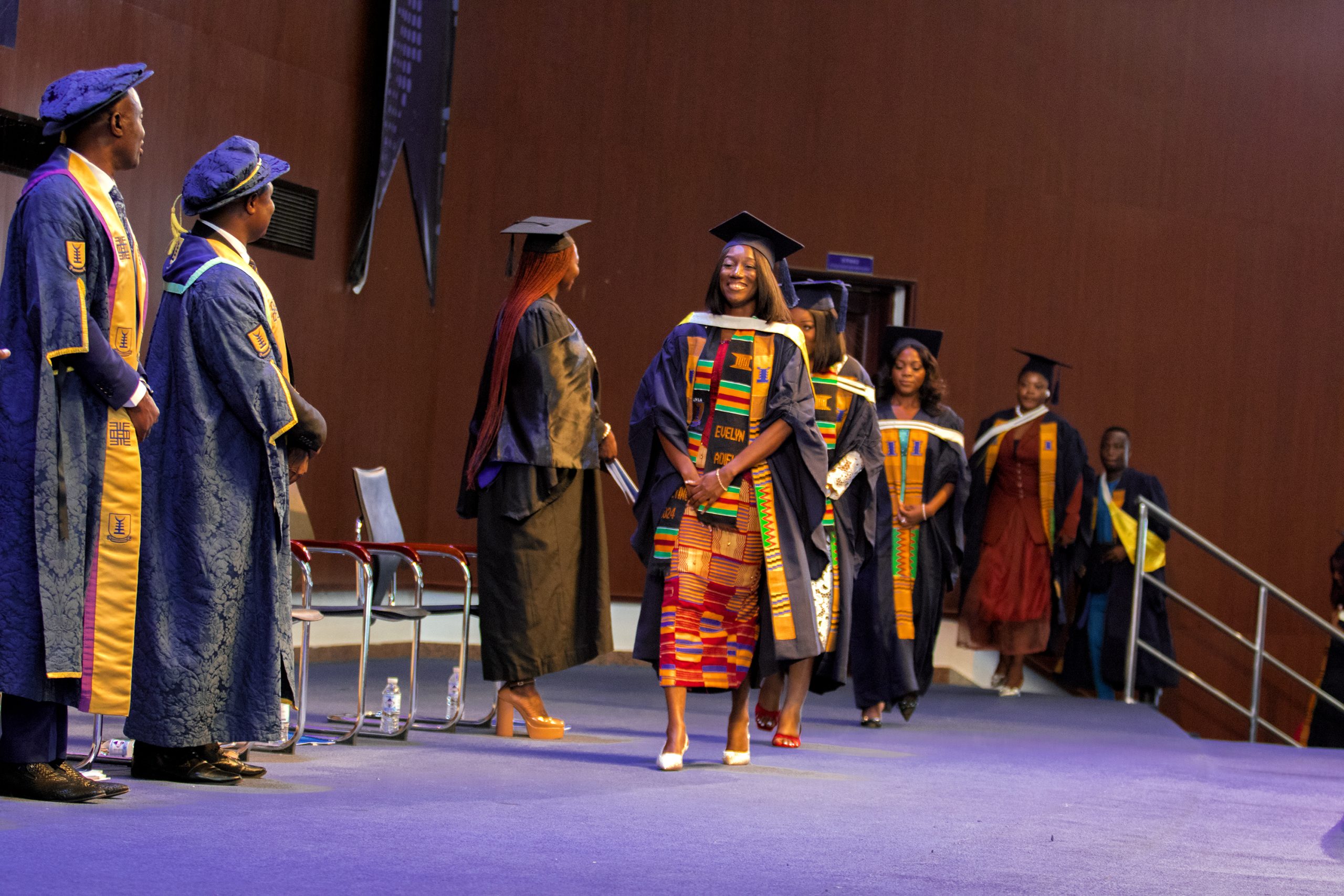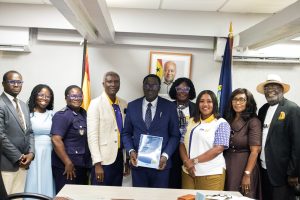Over 1,600 students from the UPSA Faculty of Management Studies on Thursday, October 31, gathered with family members, friends and guests to celebrate their graduation.
They included 1,402 undergraduates and 203 diploma students.
For the undergraduate level, 13 obtained First Class, 284 Second Class Upper, 543 Second Class Lower, 441 Third Class and 121 went home with a Pass.
For the diploma students, one student obtained Distinction, 100 students obtained Credit while 102 had Pass.
They form part of some 5,247 who will be graduating from the University this year.
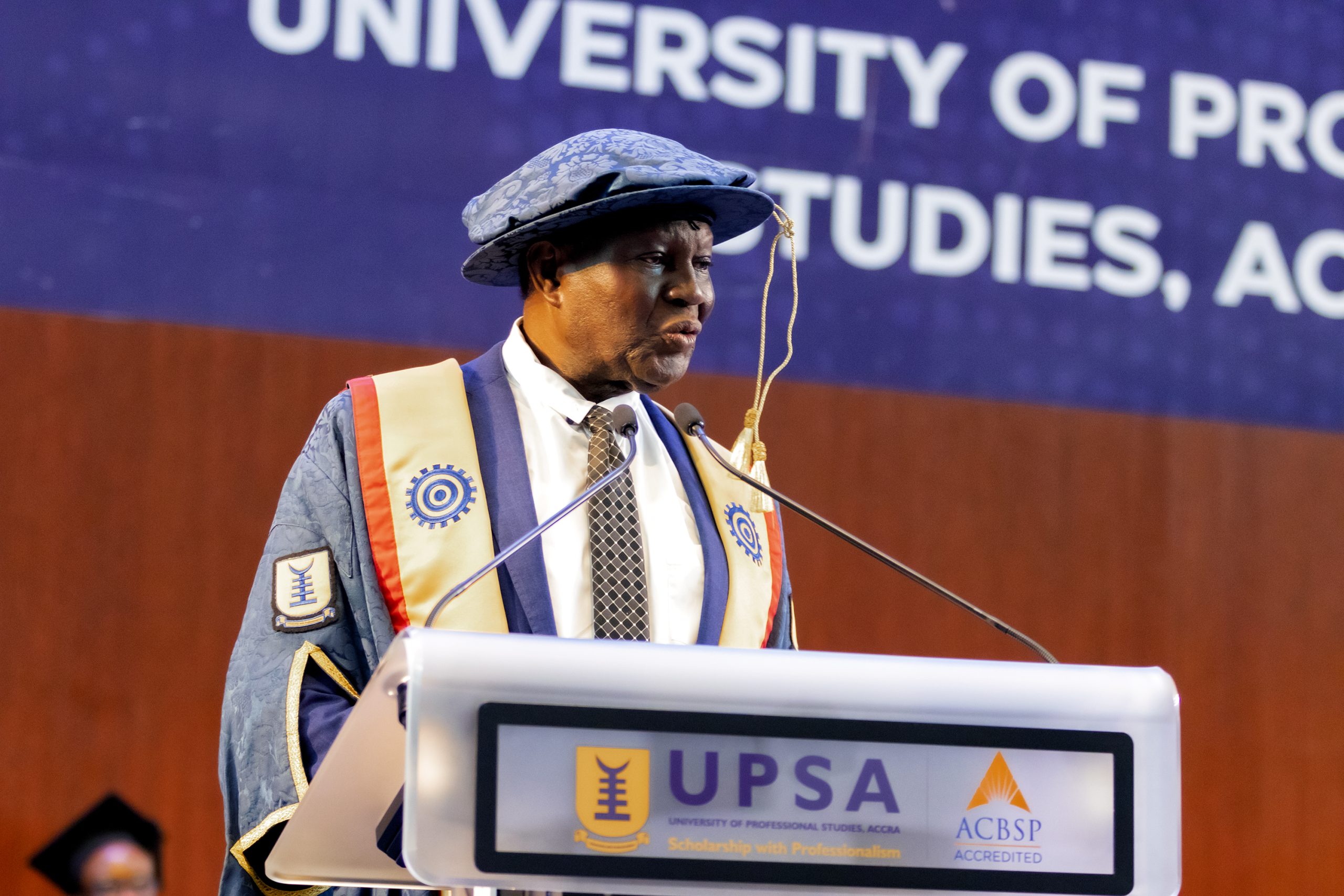
Addressing the graduates, Chairman of the UPSA Governing Council, Dr Kofi Ohene-Konadu, urged them to carry forward a commitment to integrity and innovation while advocating for responsible leadership.
He encouraged the graduands to always choose “what is right and not what is easy,” underscoring the importance of ethical decision-making.
Reflecting on the significance of lifelong learning, Dr Ohene-Konadu reminded the graduating class of the rapid technological changes shaping today’s world.
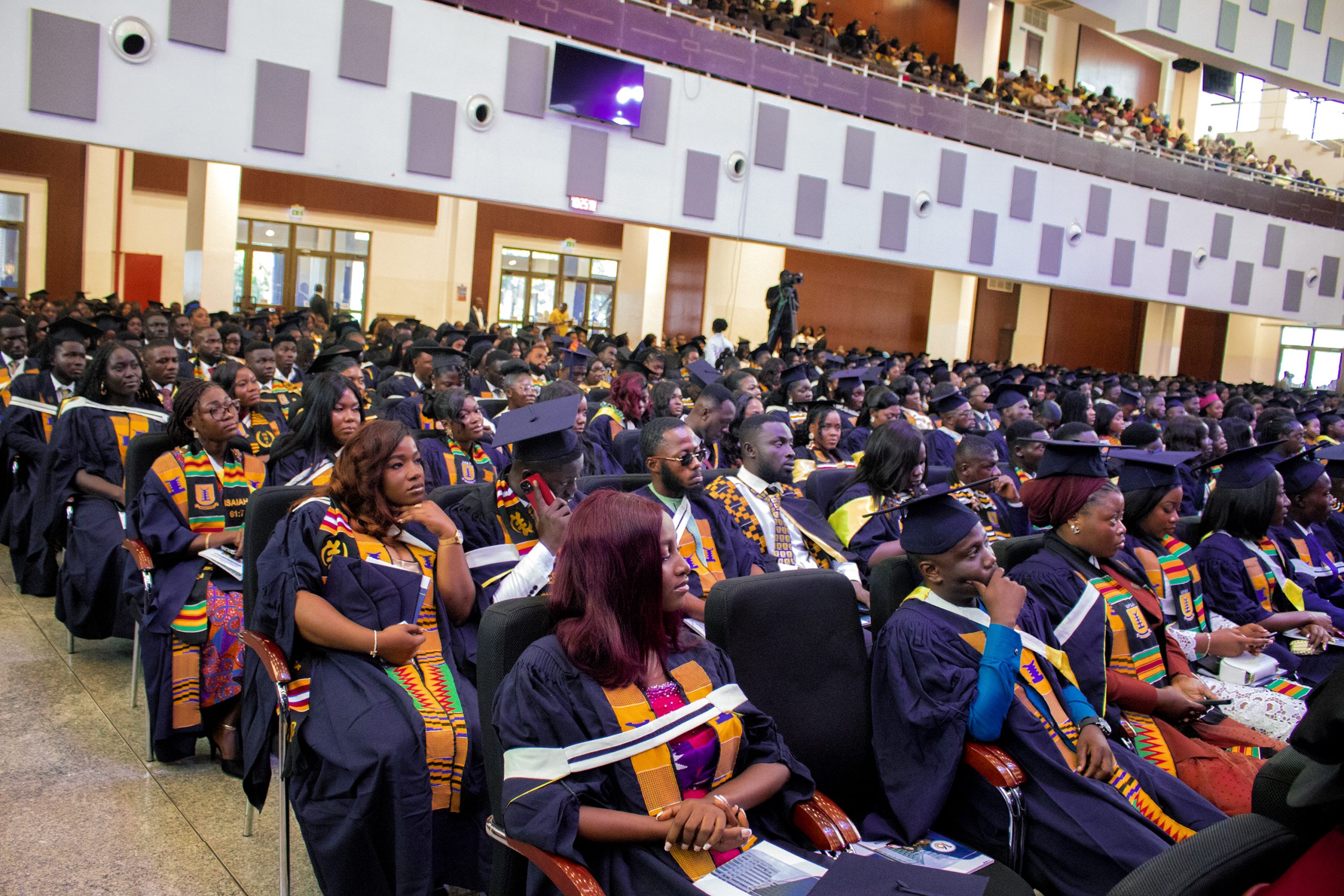
“As you venture forth, bear in mind that learning is lifelong. Continue to learn to be relevant amidst rapid technological change. Curiosity is key,” Dr Ohene-Kondau said.
He went on to highlight the value of communication as an essential complement to knowledge, advising, “Indeed UPSA has equipped you with the requisite knowledge, but note that knowledge alone is not adequate for managerial success. It requires knowledge plus the ability to communicate accurately.”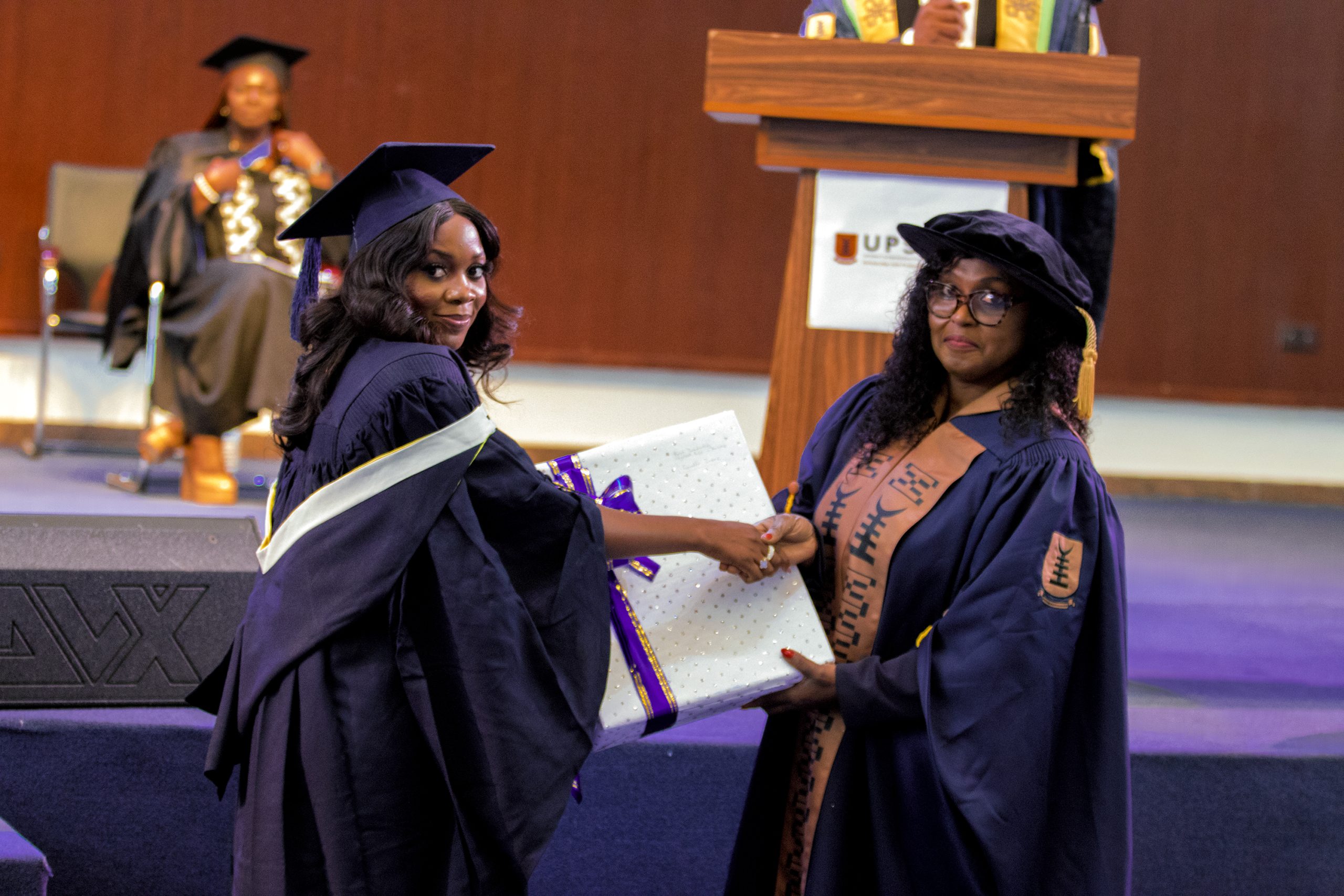
Ms. Irene Geraldo, Best Graduating Student from the Faculty and Valedictorian, receiving her prize. Doing the presentation is Professor Fidelis Quansah, Dean, Faculty of Management Studies.
He further added: “We tend to say that knowledge is power. It should be modified to ‘applied knowledge is power.’ To apply requires effective communication.”
Dr Ohene-Konadu, who was the commencement speaker, further advised the graduating students to leverage their education for the betterment of society, framing their academic achievements as tools for correction, problem-solving, and development.
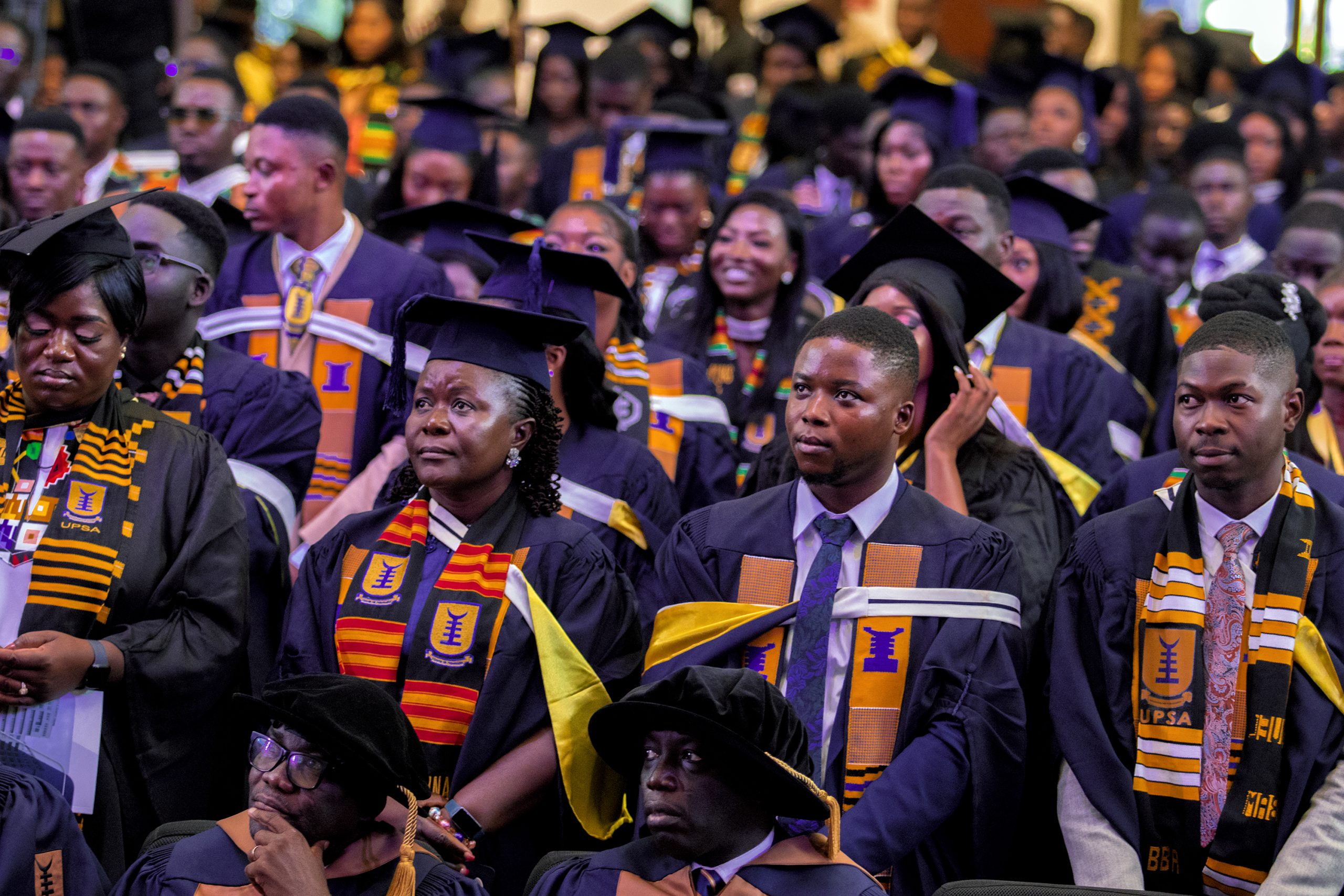
“Embrace challenges, the necessary risks, and bring about innovation. Be the leaders and change-makers Ghana needs,” he urged.

